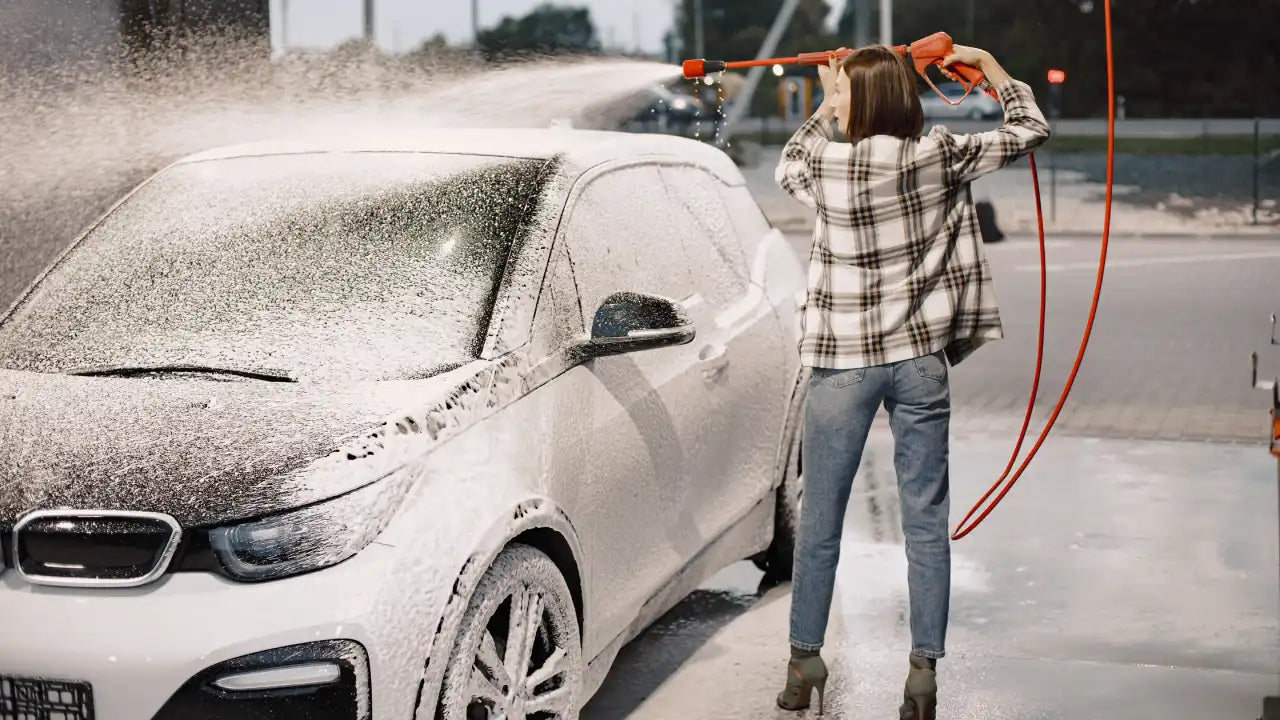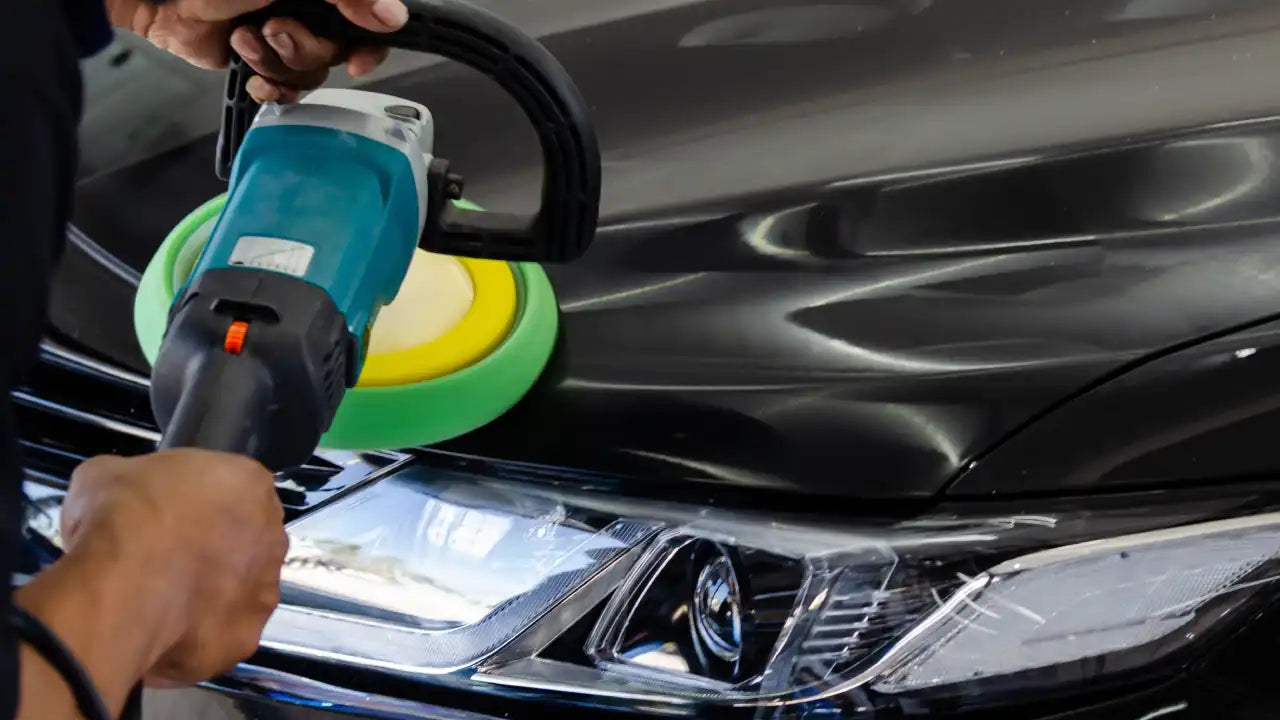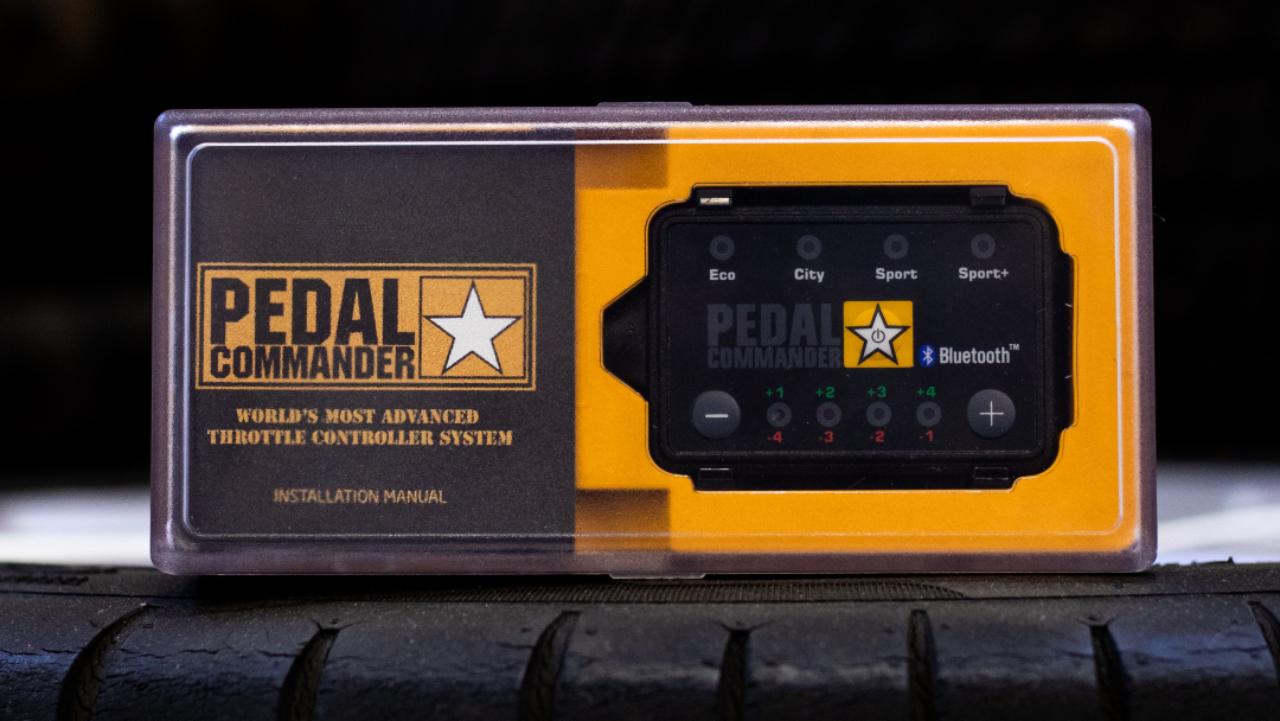The Art of Car Detailing: How to Make Your Car Look Like New
Share
One of the most fundamental goals of car detailing is to make a car look as close to new as possible by removing dirt, grime, and other contaminants that can accumulate over time. For this reason, we can divide the art of car detailing into many steps, each designed to address a specific aspect of the car.

As a result, we will talk about everything related to car detailing, including how to clean car interior, how to clean car exterior, vehicle care & maintenance, and more. More specifically, if you read this article till the end, you will find out how to make a used car look new. Towards the end, we will share with you the secrets of how you can take your vehicle to the ultimate level of performance, acceleration, and fuel efficiency.
Interior Car Detailing: How to Give Your Car's Inside a Showroom Shine
Interior car detailing involves cleaning and restoring the inside of a vehicle to a like-new condition. Giving your car’s interior a showroom shine requires time and effort, but the results are well worth it. Even though some people ignore car interior cleaning, it is essential to protect car interior surfaces. Thus, those who have to research “car restoration near me” on the Internet generally neglect car interior cleaning.
A clean and well-maintained interior not only improves your car’s appearance but also helps prolong the life of the materials used in the interior. Accordingly, car interior cleaning can even improve the overall driving experience. However, some people see keeping your car’s interior clean as a daunting task, as there are many different surfaces to clean, each with unique requirements.

For example, you should pay more attention to what to use to clean car interior. Different car interior areas require different cleaners like mild detergent, a carpet shampooer, etc. Be sure to test the cleaner on an inconspicuous area before using it on the entire surface. Once the cleaner is applied, you should use a microfiber cloth to gently scrub the surface, paying special attention to any stains or spills.
So, let’s examine how you can do interior car cleaning with three easy-to-follow steps below:
-
Vacuum the entire car interior
Before beginning to vacuum, you should remove loose debris, trash, and items from your car. This will make it easier to vacuum and prevent the vacuum from clogging with debris. Also, clear any clutter, take out any items that you don’t need, and ensure you have all the attachments you need to reach all the tight spaces.
Seats and upholstery might be the first step in vacuuming the car interior. You can use a crevice tool attachment to reach tight spaces between the seat cushions and the backrests and an upholstery tool attachment to remove dirt, debris, and stains from the seats. Be sure to pay extra attention to areas where dirt and debris collect, such as seat creases.

Also, carpets and floor mats can collect dirt and debris, especially if the car is used frequently. Regularly vacuuming these surfaces will help them look clean and prevent dirt and debris from building up over time. If there are tough stains on the carpets or floor mats, you can use a carpet or upholstery cleaner to remove them before vacuuming.
-
Clean the dashboard, console, and door panels
Cleaning your vehicle's dashboard, console, and door panels is an important task that helps maintain its appearance and value. First, you should remove debris or trash from the dashboard, console, and door panels. Next, use a microfiber cloth or a soft-bristled brush to gently remove any loose dirt or dust from the surfaces. Be sure to pay attention to any crevices or grooves, as these areas can quickly accumulate dirt and debris.

Suppose there are any stains or spills on the dashboard, console, or door panels. In that case, you should use a mild cleaner specifically designed for car interior surfaces instead of products with harsh chemicals like ammonia, bleach, or abrasive materials. Once cleaning the dashboard, console, and door panels, use a dry microfiber cloth to remove any remaining moisture. Be sure to dry the surfaces thoroughly, as any remaining moisture can lead to streaks or watermarks.
-
Wipe down the windows and mirrors
Keeping your car’s windows and mirrors clean is essential to car interior cleaning. First, you should gather the necessary materials: a microfiber cloth, a glass cleaner, and a squeegee. It’s recommended to use a glass cleaner designed for automotive surfaces to avoid damaging the car’s windows or mirrors. It is also essential to avoid using paper towels or rough materials that can leave scratches on the surface. So, regularly cleaning the windows and mirrors improves the vehicle’s overall appearance.

Exterior Car Detailing: Removing Scratches, Dents, and Dings

Also, scratches, dents, and dings on vehicles can occur over time due to various factors such as weather, road debris, and improper washing techniques. Removing them from your car can be a challenging task. But if you know how to use proper methods and tools, you may restore your car's appearance to near-new condition. Otherwise, if you don't know anything about it, you will be responsible for decreasing the value of your vehicle.
So, let’s examine how you can do exterior car cleaning with the easy-to-follow steps below:
-
Car Wash
A car wash is important for several reasons. Regular washing helps to remove dirt and debris from the vehicle's exterior, which can damage the paint and cause rust if left untreated. Additionally, a car wash can help to remove contaminants from the undercarriage and wheels, which can help to extend the life of the vehicle's mechanical components. Thus, it will improve the vehicle's overall appearance and help retain its resale value.

-
Drying
After car washing, the process of drying a car is vital. The reason is that drying helps to prevent water spots, which can be difficult to remove once they have formed. Water spots are caused by mineral deposits in hard water that dry and leave behind a residue. Also, drying the car helps to prevent any remaining water droplets from freezing in cold temperatures, which can cause damage to the paint and other components. Don’t forget that it gives a final touch and makes the car look more presentable, clean, and shiny. Thus, drying the car properly after a wash is vital to maintain the car's appearance and protect the car's paint from damage.

-
Clay Bar
A clay bar is a clay-like substance used to remove contaminants (industrial fallout, brake dust, tar, and tree sap.) from the surface of a vehicle’s paint, glass, and chrome. The clay bar is typically used after washing and before waxing or polishing the vehicle. It is used with a clay lubricant to glide the clay bar over the vehicle's surface, picking up contaminants as it goes.

Using a clay bar can help remove embedded contaminants that regular washing may not be able to remove, leaving the vehicle's surface smooth and ready for polishing or waxing. Therefore, it helps improve the vehicle's overall appearance and retain its resale value.
-
Waxing
Car wax is a product applied to the exterior of a vehicle to protect and enhance the paint, providing a barrier against environmental contaminants and physical hazards and providing a shine to the car’s surface. It comes in two main types, natural and synthetic waxes, and can be applied with proper technique and equipment.
Also, you can encounter car wax as paint correction on the Internet. There are different levels of paint correction, depending on the severity of the imperfections and the condition of the paint. Paint correction car detailing can be done by using various types of polishes and compounds, as well as specialized tools such as rotary or dual-action polishers.

So, both waxing and paint correction should only be done by a professional or someone with proper training and experience, as improper techniques or products can damage the vehicle’s paint. With professional help, you will realize the difference between paint correction before and after.
How often should you wax your car?
The frequency of waxing a car depends on a few factors, such as the climate you live in, how often you drive your car, and how often you wash it. Generally, waxing your vehicle every 3-6 months is recommended. If you live in an area with harsh weather conditions, such as high heat and UV exposure, or if you drive in heavy traffic, you may need to wax your car more frequently.

Waxing your car regularly will help to protect the paint from harmful UV rays and keep it looking shiny and new. Additionally, regular waxing can help to make washing your car easier, as dirt and debris will not stick to the surface as easily. Thus, waxing your vehicle every 3-6 months is a good practice.
-
Car Paint Protection
Car paint protection is a complex process that involves applying a protective coating to a vehicle’s paint finish. It prevents environmental contaminants and damage caused by UV rays, bird droppings, tree sap, and other hazards from the vehicle’s paint finish. The coating creates a barrier between the paint and the environment, which helps preserve the paint's original shine and color while also making it easier to clean and maintain.

Also, paint protection requires knowledge, experience, and specialized equipment, so it is best to leave it to a professional mechanic or detailer to ensure that your vehicle’s paint is properly protected and that the protection lasts longer.
-
DIY or Professional Car Exterior Detailing
DIY exterior detailing refers to cleaning and restoring the appearance of a vehicle exterior made by an individual, typically the car owner, using their own tools and products. Professional exterior detailing refers to the same process made by a trained and experienced professional using specialized tools and products.

When it comes to car exterior detailing, DIY detailing can be a cost-effective option, but professional detailing may provide better results. The reason is that professional detailers can access specialized tools and products that may not be available to you. So, if you don’t know how to detail a car exterior, you should choose professional help rather than DIY to guarantee the best results.
-
Car Detailing Services
Car detailing services can include both exterior and interior cleaning, as well as protection and preservation of the car’s paint, windows, wheels, and other surfaces. You should consult a car detailing service if your needs are beyond a DIY car wash. You might encounter mobile detail service when researching “car detailing near me” on the Internet. Mobile car detailing refers to a service where a professional detailer brings all the necessary equipment and products to a customer’s location. So, wherever you are at home or work, you can find the most convenient car detailing shop close to you.

-
Revive Your Ride: How to Fix Old and Worn Car Parts
While car detailing doesn’t seem directly related to fixing old and worn car parts, it can play a crucial role in maintaining a car’s overall condition and prolonging the life of its various components. It’s important to know that car detailing is not a substitute for regular maintenance and repairs. However, for example, when paired with a car detailing kit, regular maintenance and repairs can help prolong the life of a vehicle and keep it running smoothly for years to come.

So, you will revive your ride if you know how to fix old and worn car parts. Let’s talk about the importance of vehicle care & maintenance and fixing old car replacement parts.
-
Vehicle care & maintenance
Vehicle care and maintenance are essential for ensuring the safety and longevity of your vehicle, particularly when it comes to fixing old car parts. Regularly visiting maintenance & repair services can help identify any potential issues before they become serious problems. So, it saves you time and money in the long run.
Regular maintenance can also help increase the resale value of your vehicle, ensuring that you get the most out of it when it comes to selling it. So, vehicle maintenance and repair are important issues for every car owner to take seriously to ensure their car remains in peak condition over its lifespan.

-
Fix and Change Old Car Replacement Parts
As you can guess, old and worn car parts have a negative effect on performance, acceleration, and fuel economy. So, the importance of fixing and changing old car parts cannot be overstated. If you don’t know enough about fixing and changing old car parts, you should get professional help.
Otherwise, your amateur intervention in replacing old car parts can worsen them. So, the best option is to consult a professional mechanic for advice on how to fix specific car replacement parts like worn brake pads, worn tires, and old batteries.
What are some types of vehicle technology advancements?
Vehicle technology advancements have come a long way in recent years. From new safety features to autonomous driving systems, these technologies improve the driving experience and give drivers more control over their vehicles. Also, when it comes to old car parts, you can benefit from cutting-edge aftermarket parts.

Thanks to different aftermarket parts, you can replace worn-out or faulty components without buying an entirely new part from the dealership. Thus, all you need to do is buy one of the high-quality auto upgrades that add value to your car. Keep reading to learn the best aftermarket part on the market!
Discover Perfect Upgrades That Add Value to Your Car
There are some perfect upgrades that will add value to your car and keep the overall ride quality high. We can sort them as cold air intakes, oil filters, performance brakes, and throttle response controllers. On the other hand, you should pay more attention to risky and complex aftermarket parts like turbochargers, superchargers, and chip tunings. The reason is that they intervene with the way your original car hood parts work so that they can void your car warranty.

Let’s talk about the most practical and versatile throttle response controller on the market below:
Why Should You Buy Pedal Commander®?
Multiple SEMA awards winner Pedal Commander® is designed with advanced technology. Unlike other ordinary throttle response controllers, Pedal Commander® does not only eliminate throttle lag from your accelerator pedal but also offers a comfortable ride, mind-blowing acceleration, and fuel efficiency at the same time.
Pedal Commander® contributes to both your wallet and time. Without paying an extra fee for a mechanic, you can install or unplug it on your own. It takes just 10-15 minutes. Also, you can easily operate Pedal Commander® from your mobile phone thanks to the Pedal Commander® app, equipped with cutting-edge Bluetooth specifications.
Pedal Commander® offers 36 different mode settings to suit any driving style and road situation, with four major modes and nine additional levels for each mode. Compared to other aftermarket parts, Pedal Commander® gives more importance to your comfort in all seasons and different road conditions. So, you can customize your acceleration according to your needs on the road.

Let’s talk about Pedal Commander®’s four major driving modes: Eco mode, City mode, Sport mode, and Sport+ mode. Eco mode decreases the throttle response sensitivity and improves fuel economy by up to 20%. City mode takes your vehicle to a faster and smoother level. If you have a truck, using City mode will make your driving more civil and comfortable in the city traffic.
While Sport mode makes your vehicle even faster for spirited driving, Sport+ mode takes your vehicle to the ultimate level of mind-blowing acceleration and allows you to show off on the racetrack. As you can see, Pedal Commander® is completely worth buying. Thanks to its versatile specifications, it is more than an ordinary throttle response controller. If you want to learn more about Pedal Commander®, you can visit our social media channels.

